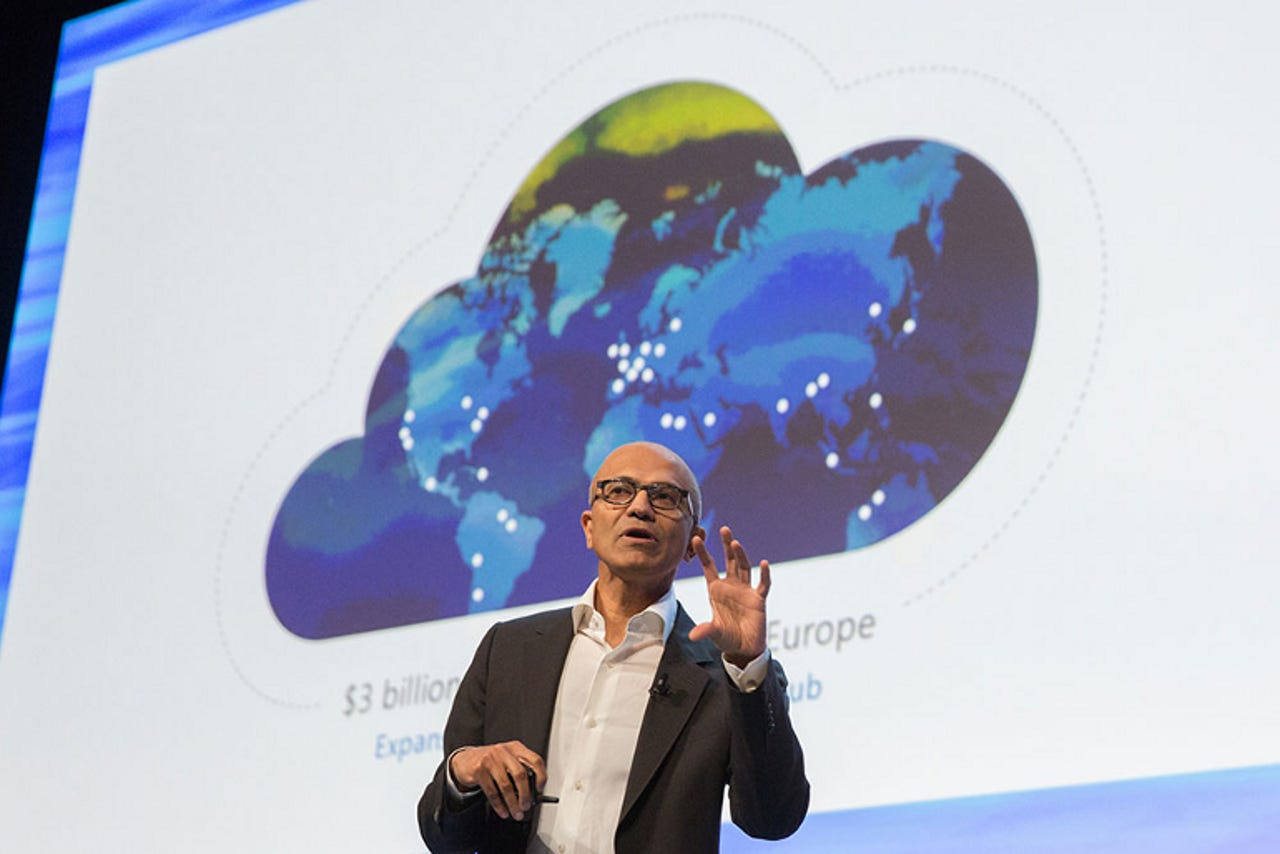Azure is becoming the first AI supercomputer, says Microsoft


You may have thought it was just a cloud computing service, but Microsoft's Azure Cloud is on its way to become the first artificial intelligence supercomputer, according to the company's CEO Satya Nadella.
At an event in Dublin, Nadella discussed how Microsoft's cloud computing offering underpins a new wave of applications that use AI technologies.
"Ultimately the cloud is about powering the next generation of applications," he said. "It is always the next generation applications that have driven infrastructure and when we look at this current generation of applications that people are building, the thing that is going to define these applications, that characterises these applications, is machine learning and artificial intelligence. Therefore we are building out Azure as the first AI supercomputer."
This means building cloud processing power not just based on traditional CPU architectures but also on GPUs. GPUs are good for dealing with these workloads because they can be scaled out so that banks of GPUs handle tasks in parallel. That's in contrast to the traditional approach of using individual machines with ever faster CPUs, which is becoming increasingly hard to do.
"When you think about machine learning, especially deep neural nets, it turns out GPUs are much better at performance and scale for those algorithms," he said. He also said that every compute node of Azure across all regions has FPGAs (Field Programmable Gate Arrays), which he said means developers can write neural network code, distribute it across the FPGA fabric and "run it at the speed of silicon".
On top of this AI-oriented architecture, Nadella said Microsoft is offering higher level services that help build AI services, such as APIs to connect to speech, image, object recognition and natural language processing services.
AI applications can often look simple to the user but need a vast amount of processing power at the back end, so the big cloud vendors are keen to position themselves as having the best platform for these high profile and compute-intensive workloads. For example, just last week Amazon Web Services (AWS) unveiled an update to its GPU-powered cloud computing service, targeting artificial intelligence, seismic analysis, molecular modelling, genomics, and other applications that need vast amounts of parallel processing power.
Microsoft has been pushing its own AI projects too - from digital personal assistant Cortana to adding AI smarts to Office 365 and Dynamics 365 for Sales. Microsoft also announced that it will be offering Azure Cloud from French datacenters sometime next year.
More on artificial intelligence
Amazon's new GPU-cloud wants to chew through your AI and big data projects
Microsoft goes AI crazy: Now Office 365 can track what you really get up to in meetings
Azure, Office 365: Microsoft's two new cloud regions tackle data privacy issues